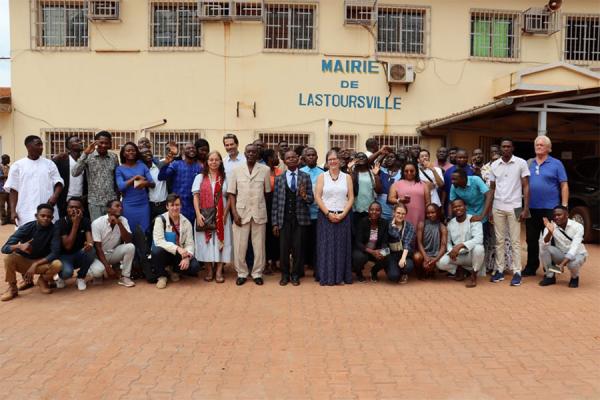University of New Orleans biology professor Nicola Anthony has received a 3-year $450,000 grant from the National Science Foundation International Research Experiences for Students program to assess the effects of forest history on biodiversity in the central African country of Gabon. The project will train a total of 15 American undergraduate and graduate students over three years and support their participation in an international field school known as ECOTROP.
ECOTROP is a collaboration among African, European and U.S. institutions and is designed to provide students with knowledge and skills in the biodiversity sciences. Field school research activities are focused around five different disciplines: environmental anthropology, archeology, ethnobotany, geosciences and wildlife biology. Anthony has been working in Gabon for more than two decades and joined the ECOTROP consortium in 2019.
Although tropical forests have long been considered relatively pristine, there is now increasing recognition that these ecosystems have been modified by former settlements throughout human history. The overall research goal of the project is to understand how past human activity at these settlements has affected current levels of biodiversity. Specifically, the team hypothesizes that former village sites may promote biodiversity through increasing soil fertility and the deliberate planting of fruiting trees that may attract wildlife.
“These former village sites could actually act as hotspots of biodiversity at a local level because of the resources that they provide through better plant growth and more abundant fruiting trees,” said Anthony, who is the principal investigator on the grant. Johannes Foufopoulos of the University of Michigan is the co-principal investigator.
The project partners U.S. students with Gabonese and French students in research teams that are organized through ECOTROP. Students will be mentored by researchers from Central Africa, Europe and the U.S. who have expertise in a wide array of disciplines relevant to this project. Findings from the study will increase understanding of African tropical forest ecology dynamics and will have important implications for forest management in the Congo Basin.
“It’s really about understanding the bio-cultural value of these sites and how they should be, potentially, incorporated into conservation planning,” Anthony said.
Anthony holds the University of New Orleans Freeport-McMoran Chair in Wildlife Sustainability. ECOTROP is partially supported through Anthony’s endowment and by an 11-member consortium, of which UNO is a member. Funding and support are also provided through the Université des Sciences et Techniques de Masuku, University of Omar Bongo and National Park service in Gabon, and the French Research Institute for Development and Agricultural Research for International Development. Additional partners also include the University of Lausanne in Switzerland and the University of Michigan.





